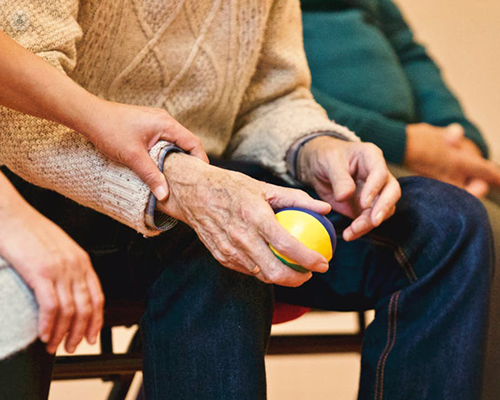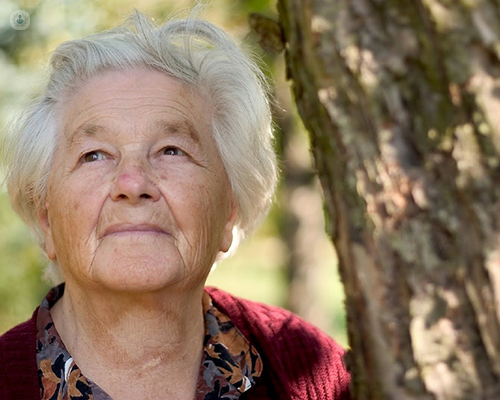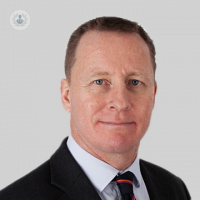Osteoarthritis and rheumatoid arthritis explained
Written by:Around 10 million people in the UK suffer from arthritis. Often misunderstood as a disease in itself, arthritis actually refers to joint pain or various joint diseases. Arthritis affects all age groups, including children. There are around 200 different variations of arthritis. In his latest online article, renowned consultant orthopaedic surgeon Mr Philip Mitchell, explains the two most common forms of arthritis: osteoarthritis and rheumatoid arthritis.

What are the symptoms?
Arthritis symptoms vary depending on which type of arthritis the patient has. The most common types of symptoms are:
- Swelling in and around joints
- Limited movement of joints
- Warmer, red skin in affected area
- Weakness and muscle atrophy
- Tenderness, stiffness, and joint pain
What is osteoarthritis?
Osteoarthritis affects 8 million people in the UK, and is the most common form of arthritis in the world. It usually occurs in adults over the age of 40 and is generally more prevalent in women or people with a family history of the condition. It may also develop after a joint injury, and in overweight people due to the strain on their bones.
Read more: osteoarthritis in young people
Osteoarthritis affects the cartilage that lines the bones. Over the years, general wear-and-tear to the cartilage causes it to waste away until eventually, in some cases, you can end up with bone grinding against bone. This process may occur over years, but it can also develop more rapidly after an injury. As the cartilage wears away, movement becomes restricted and painful. Osteoarthritis mostly occurs in the hands, knees, spine, and hips.
What is rheumatoid arthritis?
Rheumatoid arthritis usually begins to develop in people aged between 40 and 50. It affects about 400,000 people in the UK, making it the second most common type of arthritis in the country, after osteoarthritis. In people with rheumatoid arthritis, the body’s immune system attacks the synovial membrane, a tough membrane that lines the joints. This leads to pain and swelling of the synovial membrane. The rest of the joint can then be affected until, in severe cases, even the bone and cartilage begins to deteriorate. Due to the nature of rheumatoid arthritis, it can also lead to further complications with tissues and organs in the body.

Life with arthritis
Unfortunately, there is still no cure for arthritis, but there are a number of treatments for arthritis available designed at making life easier and slowing down joint deterioration.
Osteoarthritis treatment usually involves certain medications including painkillers, corticosteroids, and non-steroidal anti-inflammatory drugs (NSAIDs). Occasionally, in severe cases of osteoarthritis when daily life is extremely limited, surgery may be advised:
- Arthroplasty (joint replacement)
- Arthrodesis (joint fusion)
- Osteotomy (cutting and re-aligning bone)
Rheumatoid arthritis treatment tries to slow down progress of the condition as well as reduce joint swelling in order to prevent any further damage. The following treatments are usually recommended:
- Painkillers
- Disease modifying anti-rheumatic drugs (DMARDs)
- Physiotherapy
- Exercise
If you have arthritis it is important to keep your joints moving, doing daily exercises, gently stretching your joints to their full extent. It is also important to understand your own limits, and avoid overdoing anything. Finding the right balance between rest and activity is essential, as is good posture. There is plenty of help out there as well, for people who are having a hard time coping with arthritis.
If you would like to book a consultation with Mr Philip Mitchell you can do so today via his Top Doctors profile.


